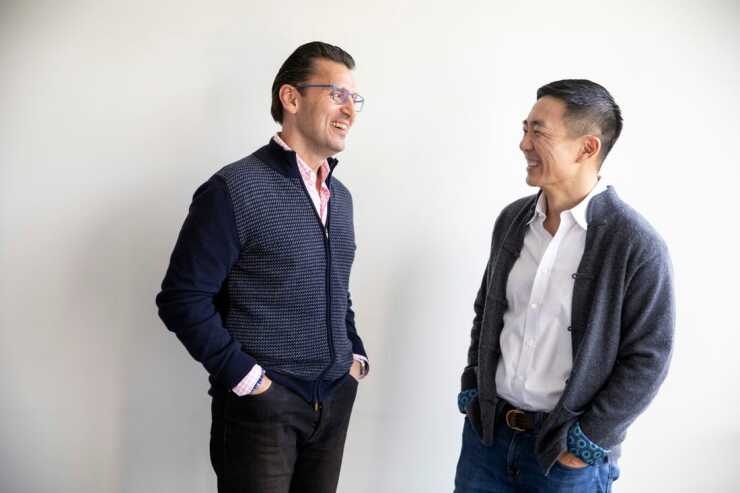Intuit's Sasan Goodarzi and Credit Karma's Kenneth Lin offered consumer-friendly motives for the merger of their companies after officially unveiling the $7.1 billion deal late Monday.
Intuit, in Mountain View, Calif., provides software for personal financial management (Mint), tax preparation (TurboTax) and accounting (QuickBooks) to consumers and small businesses.

Credit Karma, in San Francisco, started out as a provider of free credit scores and expanded over time to become a matchmaker of consumers to credit card, loan and mortgage deals. It recently added a savings account to its offerings.
Goodarzi, the CEO of Intuit, said on a conference all that he has a simple goal for the merger: empowering consumers to manage their money. Intuit and Credit Karma have a shared goal of doubling the household savings rate for customers on their platform by 2025, he said. The two companies also will use artificial intelligence and their pooled data to help consumers "unlock smart money decisions," Goodarzi said.
“What you’re now able to bring together with the two companies is the customers' complete financial identity so they can get the best loan and insurance products for them,” he said.
Lin said that banks spend tens of billions of dollars every year on marketing, but only 20% of marketing dollars are efficient because of their very specific credit profiles.
“We’re able to help banks to find those exactly right customers,” Lin said.
Credit Karma helps consumers by giving them certainty and transparency around the products that are right for them, he said. “Most consumers don’t know which are the right products for them or how to apply for those products,” Lin said.
Under the deal, Credit Karma would continue to connect consumers to financial institutions and operate as a separate company.
“Ken is in charge — our goal is to fuel his success and Credit Karma’s success,” Goodarzi said.
Lin spoke of his company’s efforts toward autonomous finance, which he described as helping consumers automate their financial lives and improve their savings rates.
Credit Karma will keep offering its free tax assistance app, Lin said. Customers will be able to choose the tax product that is right for them, he said.
“We’re not a credit score company or a tax company,” Goodarzi said.
There are opportunities for the two companies to do more for small businesses, Goodarzi said. Intuit provides accounting software for small businesses; Credit Karma does not serve that market today.
“Credit Karma provides the consumer a certainty of finding the right product at the right rate,” Lin said. “We’re now able to solve that for small businesses as well.”
The cash-and-stock deal is expected to close in the second half of the year provided the necessary regulatory approvals are obtained and other conditions are met, the companies said.





